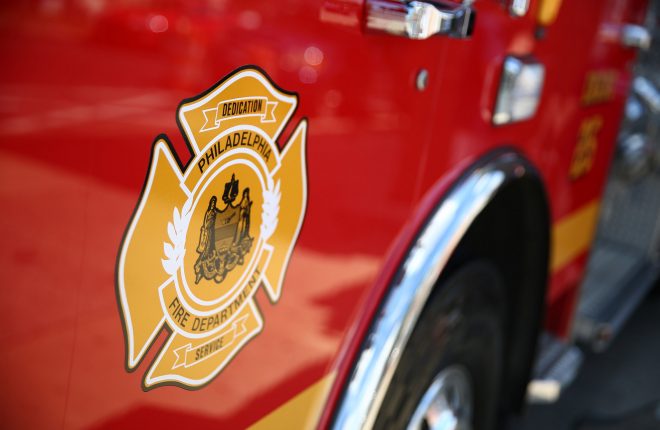“The best fire that we fight is the one that doesn’t begin. That is the purpose of Fire Prevention Week. We need everyone involved in this effort to get fire deaths down to zero.” -Philadelphia Fire Commissioner Adam Thiel
History
Fire Prevention Week’s origins date back to the Great Chicago Fire of 1871. The fire, which began October 8th, burned for several days and spread across the city. In the end, the conflagration killed more than 250 people, left 100,000 homeless, destroyed more than 17,400 structures, and burned more than 2,000 acres.
President Woodrow Wilson issued the first National Fire Prevention Day proclamation in 1920 to commemorate the tragedy. Since 1922, Fire Prevention Week has been observed on the Sunday through Saturday period in which October 9 falls. The week, which memorializes the 1871 fire, also serves the purpose of creating awareness with the goal of zero fire deaths.
“Fire is everyone’s fight”
Philadelphia Fire Commissioner Adam Thiel’s words as he accepted a proclamation declaring the week of October 9th Fire Prevention Week. The decree was presented by the City of Philadelphia’s First Deputy Managing Director Brian Abernathy on October 5th.
As the fire commissioner noted, October is fire prevention month as the fire department will be conducting outreach activities.
Home fires and conflagration (an extensive fire that destroys a great deal of land or property) is a great concern to residents and businesses in Philadelphia. Half of those responding to our Hazard Mitigation Survey say fires that affect a city block are a concern to them. A way to help alleviate that worry is for residents and businesses to be knowledgeable and prepared.
Something we value in the Office of Emergency Management is informing and including the public as to their roles in our plans. As we say, putting the “public” in “public safety”.
Fire Commissioner Thiel echoed this belief, noting, “It takes all of us, together, to help fight fires.” Thiel added, “It’s not just our fire department. We need everyone engaged in fire prevention.”
What you can do
- Be Smoke Alarm Aware:
- Did you know the lifespan of a smoke detector is 10 years? If not, you’re in the majority. A National Fire Prevention Association survey showed 90 percent of respondents did not know that smoke alarms should be replaced every 10 years. Nearly 20 percent of those surveyed reported having smoke alarms that were older than 10 years. After 10 years, the sensors in smoke detectors begin to lose their sensitivity.
- Have a smoke alarm, and test it. In 2015, half of the fire deaths in Philadelphia were in residences that did not have smoke alarms or were inoperable due to missing batteries.
- If you do not have a smoke detector, the City has one for you, at no cost. The Philadelphia Fire Department will even install it for you. Contact the fire department or Philly 311, the City’s non-emergency number for services.
- Treat all alarms as a real emergency. Become familiar with the Philadelphia Fire Department’s Fire Safety Rules.
- Know where to place your smoke alarms.
- Sit down to develop, and practice, an escape plan for you and your family.
- Establish an emergency plan, which includes a contact list, meet-up locations, and building a go-bag. Include everyone in your home: those with access and functional needs and your pets too.
- Be connected to emergency information through free ReadyPhiladelphia alerts. Details, which may include evacuations and shelters being opened, are sent to your phone or computer as text or email alerts. That information may also be published on public safety social media accounts for OEM, Philadelphia Police,Philadelphia Fire and the City of Philadelphia.
Follow Philadelphia Office of Emergency Management on Twitter. Like us on Facebook.

